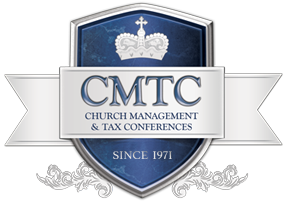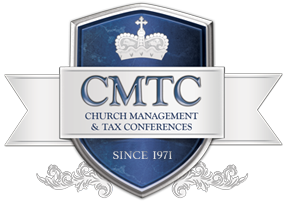Improper Classification Can Be Costly
One of the biggest mistakes Churches make, that get them into trouble with the Internal Revenue Service, is the practice of misclassifying employees. Churches have a bad practice of paying people in the Church and providing a 1099 instead of a W-2. This practice recently cost a Church in Michigan huge penalties, including a multi-million dollar lien on their property. To help clarify who is and who is not an employee, let’s apply a test for each.
An Employee
Anyone that meets any of the following is an employee and should get a W-2.
- Employer has the right to direct and control the worker (even if he does not do so)
- Paid on an hourly, weekly, or monthly basis
- Uses equipment, tools, and materials provided by the employer
- Receives predetermined earnings and cannot realize significant profits or loss
- Schedule dictated by the employer
- Trained by the employer, either formally or informally
- Receives benefits, such as insurance, pension, or paid vacation or sick leave
- The relationship between employer and worker is ongoing – not on a job or project basis
The very first one should be enough to seal the issue, but if it doesn’t convince the Pastor and Board who is an employee, the rest of the bullets should.
A Non-Employee
A non-employee would be governed by the following and should get a 1099:
- A contract stating the worker is an independent contractor, although this is not determinative (employees can also work by contract, or agreement)
- Free to determine how the work gets done
- Paid for each individual job
- Uses his own equipment, tools, or materials
- Can personally realize significant profits or losses in the business
- Works temporarily or on individual jobs
A Simple Definition
A simple definition that is easily understandable would be this. An employee is anyone on the inside of your Church or connected to it, that does some work, and is paid by the Church. That individual would get a W-2.
A non-employee is anyone from outside of your Church, not connected to it, who does any work and is paid. That person would get a 1099.
Let’s Tie it All Together
Musicians, nursery workers, janitors, and those doing lawn care are not independent contractors if they attend the Church and the Church has the right to direct or control their work and pays them hourly, weekly, or monthly, and those workers cannot suffer any significant loss or gain.
I have had Churches quickly inform me that their musicians were independent contractors simply because they used their own equipment and provided the music for more than one Church on Sundays. Let’s address each of those.
The equipment issue: The definition of employee is one that meets any of the previous mentioned. Most guitar and bass players use their instruments because they are comfortable with them and those instruments are easily transportable. Guitar and bass players like a certain feel to their instrument – i.e. the height of the frets, how easily transitions can be unnoticeably made, etc. Drums, organs, keyboards or pianos, are entirely different. They are too bulky to be hauled in an out of a Church every service and most Churches have these instruments in place on the platform.
The number of Churches for which they play on a given Sunday issue: Many musicians adamantly claim their independent contractor status because of this. However, let’s look at it from a non-church perspective. If someone works two or three part-time jobs, for instance they work for McDonald’s, Burger King, and Wendy’s, do they only get a W-2 from the one that first hired them and a 1099 from the other two? No! Even if they work the same day at each establishment, each of them would provide the worker with a W-2.
Another issue that is raised by Churches and musicians is that of fill-in musicians. Again, let’s look at the non-church perspective. If you go to work for McDonald’s and work only one day, McDonald’s does not give you a 1099—they give you a W-2.
Why Your Church Needs Us
It is not what you know that will hurt you; it is what you do not know. Cheap advice is expensive. I have encountered countless Pastors and Church Leaders who have been devastated by the advice from a local CPA. Some of these Pastors and Leaders have incurred huge fines and penalties, and some have even faced criminal charges.
Chitwood & Chitwood has provided Church and Clergy Tax Management for more than 78 years. We are the best. We know what others do not know, and how to ensure that every Church properly apply the regulations within their local House of Worship.
Every Pastor and Church Leader should immediately attend the soonest Church Management Conference nearest them. To register, visit us at www.cmtc.org or call 800-344-0076.
For others this is a job, but for us “It is A Ministry!”

